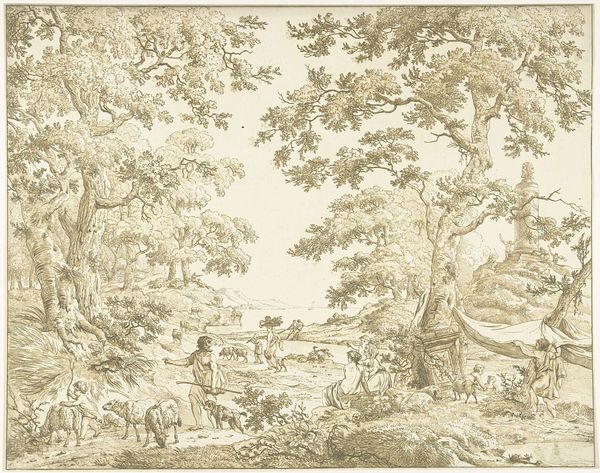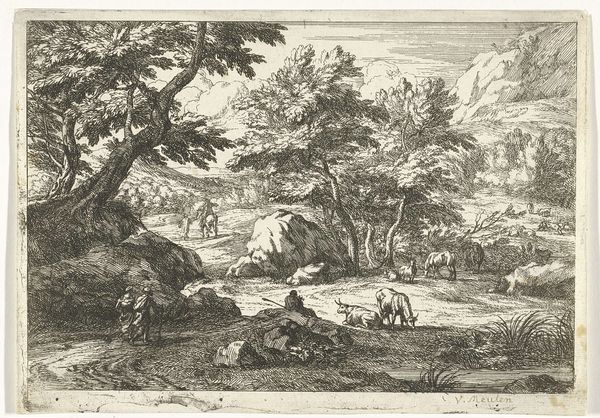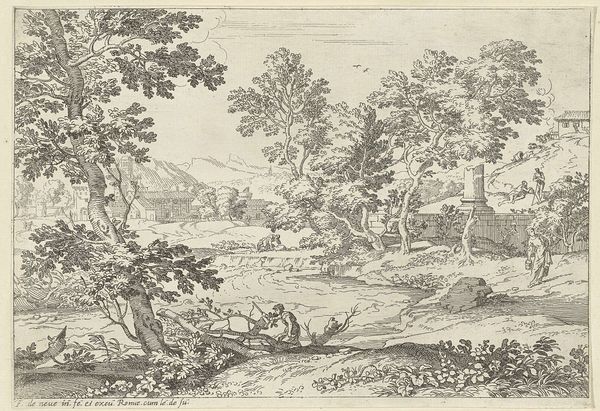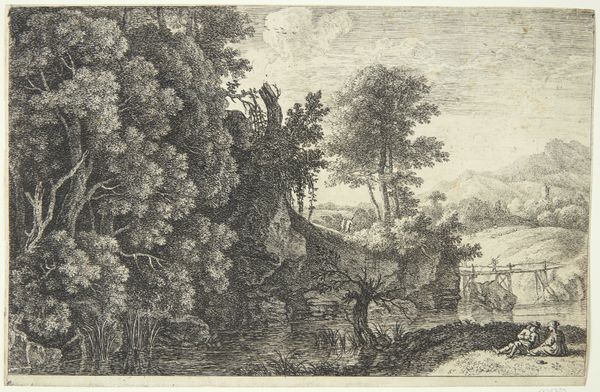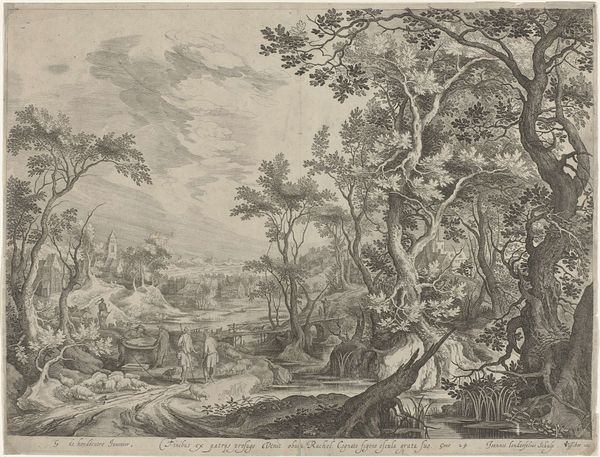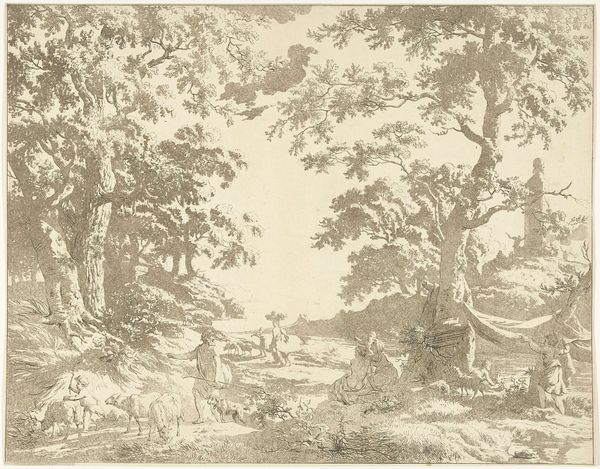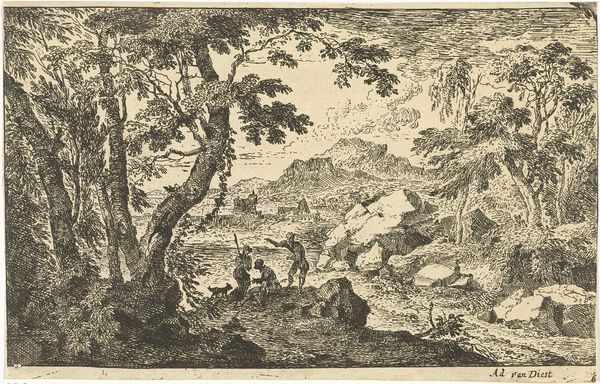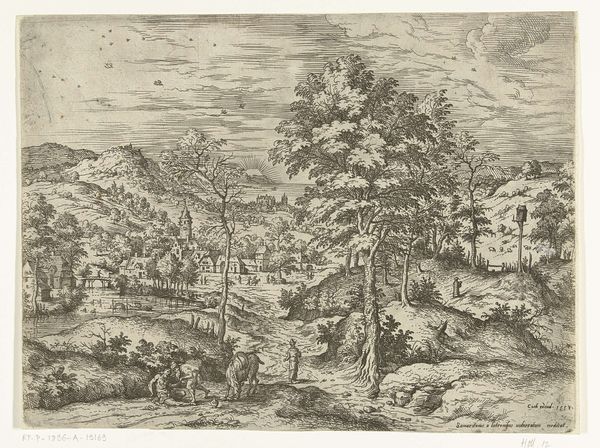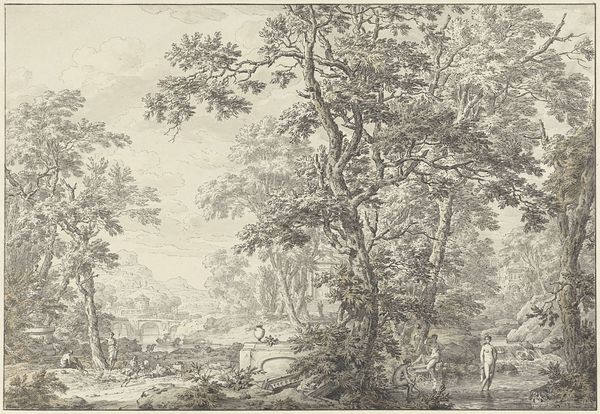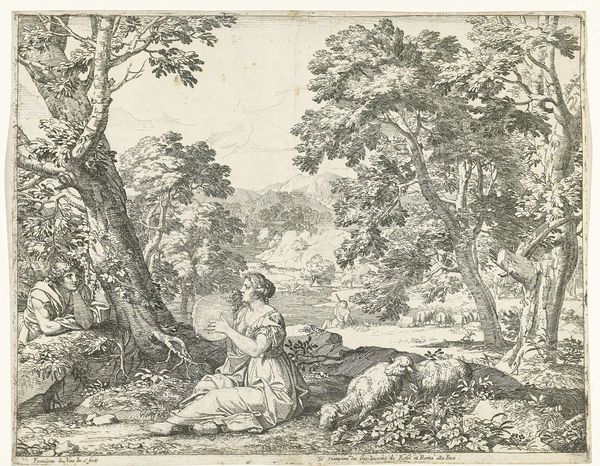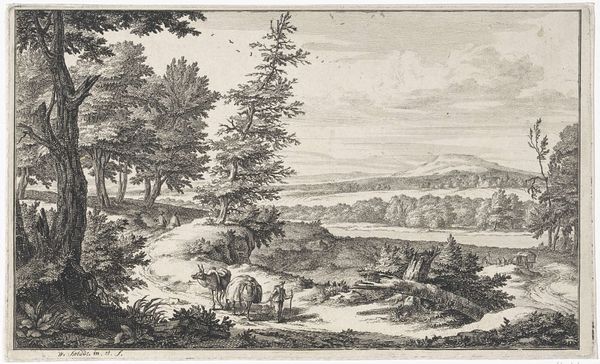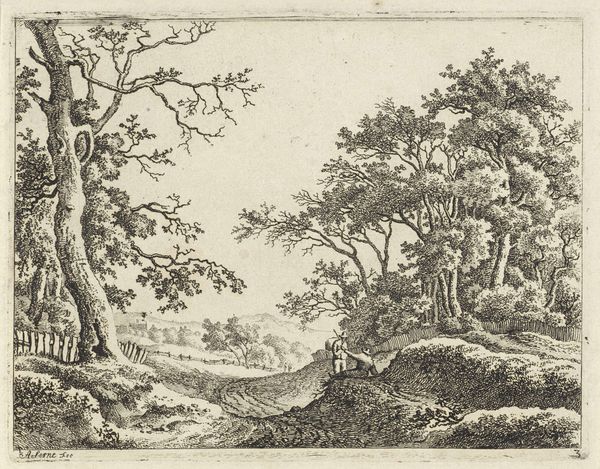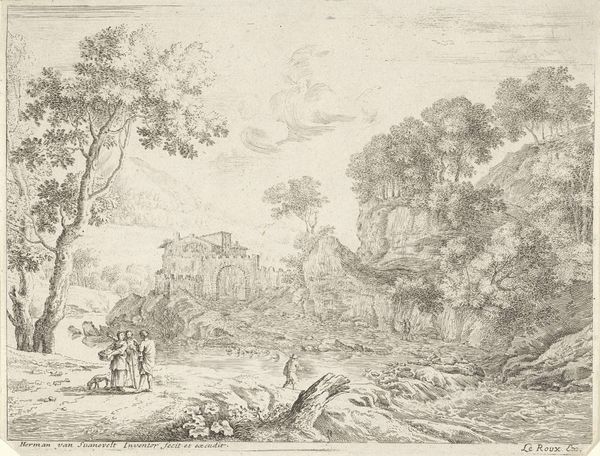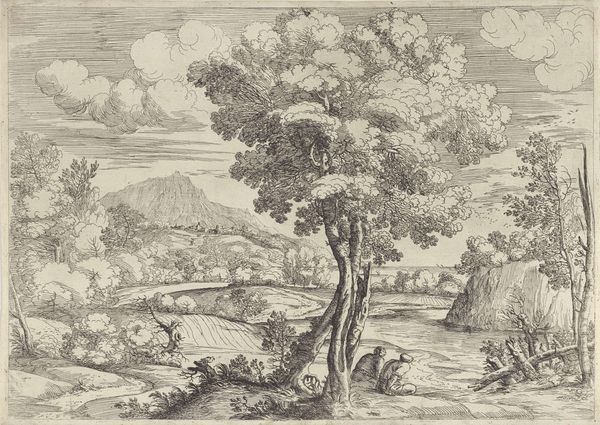
drawing, ink
#
drawing
#
neoclacissism
#
pen drawing
#
landscape
#
figuration
#
ink
#
line
#
history-painting
Dimensions: height 372 mm, width 472 mm
Copyright: Rijks Museum: Open Domain
Editor: This ink drawing by Hermanus Fock, titled *Arcadian Landscape with a Statue of Janus*, made sometime between 1781 and 1822, has such intricate linework! The classical figures give it a peaceful mood, but there's a subtle tension too. What stands out to you when you look at it? Curator: The most striking element for me is, of course, the Janus statue itself. Janus, the Roman god of beginnings and transitions, is visually represented with two faces, one looking to the past and the other towards the future. Positioned in this arcadian landscape, it infuses the scene with a sense of cyclical time and remembrance. It prompts us to consider the visual language Fock employs, drawing from classical imagery, as cultural memory made manifest. Editor: That makes me think about the historical context. This Neoclassical style was quite deliberate, right? Curator: Precisely! Neoclassicism consciously drew upon the art and culture of classical antiquity, which were perceived as standards of excellence. Landscape, figuration, and even the line style evoked the aesthetic values and perhaps also the sociopolitical aspirations of that era. It served to legitimize certain values, perhaps offering an idealized, remembered past? Editor: So, the statue acts like a key, unlocking layers of historical and cultural understanding? Curator: Precisely! How does it prompt you to reflect upon continuity and change? The choice of Janus, as opposed to any other classical god, is pivotal in establishing this connection, making you reflect. Editor: That makes a lot of sense. I’m left thinking about how artists choose symbols, and how those symbols resonate across time. Curator: Exactly. Art, as cultural memory, continues to evoke our sense of identity, through symbols we must learn to read anew with each encounter.
Comments
No comments
Be the first to comment and join the conversation on the ultimate creative platform.
